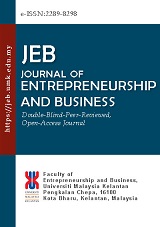Financial Literacy and Zakat Utilization: A Conceptual Framework for Asnaf Economic Empowerment
DOI:
https://doi.org/10.17687/8pdhzv73Abstract
Zakat is essential for alleviating poverty and fostering social welfare in Muslim-majority countries. In Malaysia, particularly in Perlis, the Asnaf community depends heavily on zakat assistance for financial stability. However, ineffective utilization of zakat funds due to limited financial literacy continues to pose a challenge. Financial literacy which encompasses knowledge, skills, attitudes, and behaviors is crucial for financial decision-making. Despite its recognized importance, few studies have examined the relationship between financial literacy and optimal zakat fund management among Asnaf recipients. This paper proposes a conceptual framework linking financial literacy to zakat fund utilization, arguing that targeted financial education can empower Asnaf recipients to manage finances more efficiently, reduce dependency on aid, and achieve long-term sustainability. Integrating Shariah Governance Theory and Financial Literacy Theory, the framework emphasizes responsible financial management within Islamic principles. This study contributes to the literature by highlighting how important structured, context-specific financial literacy programs within zakat distribution systems. Future research should empirically test the proposed model to validate its role in improving economic outcomes for the Asnaf community.








